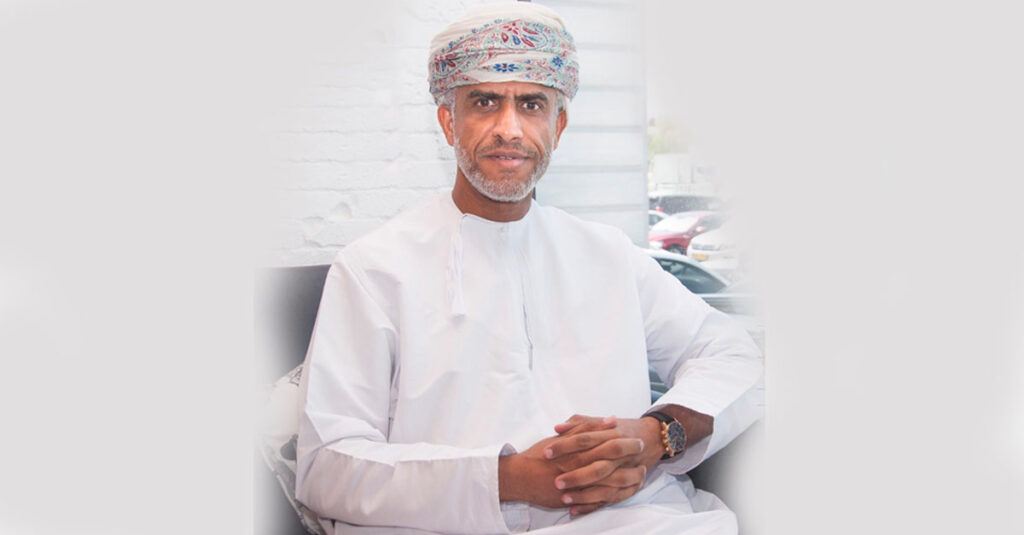September 21 is World Alzheimer’s Day

The call to unite for a cause resonates well in a world, which is just slowly recovering from one of the greatest global challenges in a century. Dr Hamed Al Sinawi, a senior consultant, old age psychiatrist at the Sultan Qaboos University Hospital and Chairman of the Oman Alzheimer’s Society, was commenting on the 2022 World Alzheimer’s Day and Month’s theme, which happens to be the same as last year.
Know Dementia, know Alzheimer’s
“This year’s theme, ‘Know Dementia, Know Alzheimer’s,’ continues on from the 2021 campaign, which focused on diagnosis, the warning signs of dementia, the continued effect of COVID-19 on the global dementia community and more,” Alzheimer’s Disease International, said in its report.
More to the theme
However, Dr Sinawi pointed out that there was something more to this year’s theme than meets the eye: “It is indeed the same theme as last year, but there is an added sentence, which takes the theme to a different height. That sentence is: ‘Together we can do so much!’”
Together, we can beat any odds
And indeed, not just with dementia or alzheimer’s disease, in any challenge, be it one that of health or a monetary, family or even a humanitarian crisis, a concerted and united effort can work wonders. Together, we can mount any challenge; perhaps, beat any odds.
Improve quality of life
“If we talk of dementia or alzheimer’s disease, well, this sentence emphasises the importance of collaboration of different sectors and raise public awareness about dementia and thereby help improve the quality of life of the person with the disease and his/her caregivers,” Dr Sinawi stressed
Each September, people unite from all corners of the world to raise awareness and to challenge the stigma that persists around alzheimer’s disease and all types of dementia.
Excerpts:
This year’s theme is a take off on last year’s theme, ‘Know Dementia, Know Alzheimers’. Since it is a continuation of last year’s theme, are we seeing little or no progress in this area (in the sense, people are still finding it difficult to accept dementia/alzheimer’s disease and the same old myths and beliefs continue)?
It’s true that the theme is the same yet there is a sentence added to the theme, which takes it to a different plane altogether: “Together we can do so much”. This is to emphasise the importance of collaboration of different sectors to raise public awareness about dementia and improve the quality of life of the person with dementia and his or her caregivers. With regards to accepting this disease, I must say that there is some progress and I am seeing more people coming to my clinic with their loved ones seeking an assessment. As you know, stigma is a complex phenomenon and it will take time to engage more and more people to come for an assessment and change their attitude.
In the space of the last World Alzheimer’s Day and now, what has changed globally and what has changed in Oman? Are we seeing any progress both internationaly and locally, in terms of alzheimer’s disease being accepted for what it is – an incurable disease and one which the family (read: caregivers) have to fight a seemingly uphill task?
With regard to any progress in addressing dementia, it’s clear that the process has to be delayed due to the COVID-19 and the financial and related crises that followed. However, a global action plan on dementia was developed by the World Health Organisation (WHO) and the Alzhiemer’s Disease International (ADI). This plan aims to improve the lives of people with dementia, their families and caregivers, while decreasing the impact of dementia on communities and countries. Many countries signed up to this plan but then again, the challenges in implementation still remain for many countries.
What about the alzheimer’s-disease-ridden individual who has no one to take care of – no family and only paid caretakers? And there are those who have little or no means monetarily who could be the real victims – what happens to them? What happens to the homeless, poor and poverty-ridden who fall ill with dementia/alzheimers – at least in the Omani context? Is there any special support programme for dementia/alzheimer’s patients in Oman? If not, when will such an important support programme start for such patients?
In Oman, the elderly, who have no family to look after them, are registered with the ministry of social development. There is a scheme, Adopt a Granny, where an elderly person who has no relative is looked after by another member of the community who is paid by the government for his/her services. If needed, the government will allow getting a new room to be built in the new family house so the person maintains his/her privacy and remain in the community he or she belongs to. If this arrangement fails, then the person is moved to the elderly care home in Al Rustaq, where he/she gets taken care of by trained staff.
This year’s campaign has a special focus on ‘post-diagnostic support’. Could you please throw light on this aspect and also how Oman’s alzheimer’s patients can benefit from such a campaign?
The focus on post diagnostic support stems from the fact that worldwide very few people who have dementia are diagnosed and even after diagnosis some do not get adequate care and service.
The scientific community has been exploring behavioural therapies that keep the person with dementia active in terms of brain function and social activities. One of these programmes is called cognitive stimulation therapy and it aims to keep the person engaged through a variety of activities that looked into cultural components like traditional food and folklore music and songs along with games like crosswords and dominoes. The original programme was developed in the United Kingdom but we worked with a team of psychologists from Al Harub Medical Centre to translate the content and make it more appropriate for the Omani community.
Has the COVID-19/pandemic added more problems in the drive to assist and support patients with alzheimer’s? How has the pandemic affected the overall care drive among both families and/or caregivers?
Naturally, the COVID and the lockdown had negative impact on the ability of patients to attend our memory clinic for assessment. We also noticed that the isolation that resulted from the lockdown affected the person with dementia and their caregivers in a negative way as people were trapped in their homes with little contact with the outside word. Patients who were still physically active and went for walks or prayed in the mosque were unable to do so. This led to fast deterioration in their mental abilities. We also noticed those who had alzheimer’s or other dementia and got infected with COVID experienced tremendous problems as far their symptoms were concerned.
What is the single most challenge that caregivers of alzheimer’s patients are facing today?
Actually there are many challenges facing caregivers, starting from accepting the diagnosis – that is to say that the fact that their loved one has alzheimer’s and convincing them to see a doctor about it. Yet, if I am to pick one challenge, I would say it is to deal with the behavioural changes experienced by some patients. When they become aggressive and refuse to bathe or insist on leaving the house, or refuse to eat or have changes in sleeping cycles, keeping them up throughout the night
(When the caregiver needs to sleep) and sleeping during the day (when the caregiver needs to go to work or attend to house work if not employed).

0 Comments